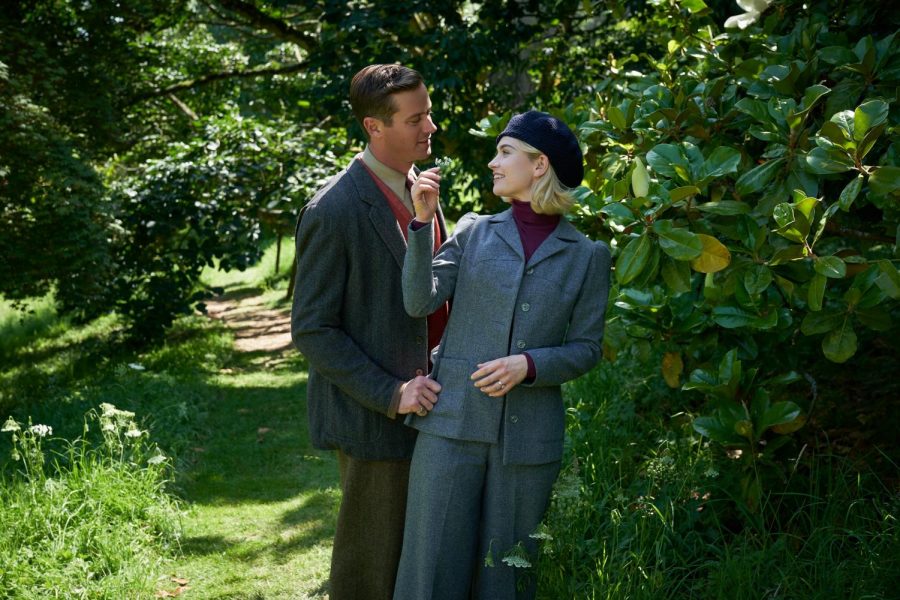‘Rebecca’ is a shallow, unoriginal adaptation of the 1930 novel
November 15, 2020
There is nothing fresh, never mind original, in Ben Wheatley’s retelling of Rebecca. Based on the late 1930s novel, this film version of Rebecca had high expectationsbut unfortunately fell hard on its face. Instead of being topical or becoming unique, it just decided to be the new Fifty Shades of Grey.
This new adaptation loses faith in its characters pretty quickly as we meet the young protagonist, Mrs. de Winter (Lily James), who suffers under the control of her employer, but automatically falls in love with Maxim de Winter (Armie Hammer). Maxim rescues our heroine from social embarrassment by being charming and delightful, despite the gossip about him still grieving the death of his beloved wife Rebecca. It is obvious early on that they’re making these characters more likable than the original counterparts.
After a quick romance, Maxim proposes marriage and they apparently fall in love. But of course, it’s never that simple and our protagonist feels the pressure of what Rebecca left behind. She’s always going to wonder if she’s second-best. The locations, cinematography and costumes are all well-maintained and follow along with the book. An interesting part of this film is that it takes place explicitly in 1935, yet the impact of the Great Depression is nowhere in existence. The film is all champagne-fizzy and golden-light, rich people in linens, swinging to jazz in the background as our main character goes through a midlife crisis.
It’s clear that Lily James was meant to bring a fresh new take on the idea of a strong woman to the role in the second half as the character takes the reins of the situation. The script, however, is too afraid to really show what that means. Instead, Lily James betrays our main character as somebody who can’t get past her jealousy over a dead woman.. The protagonist comes off as inquisitive, and loyal to a fault, which feels so 21st century that it doesn’t play well with the setting at all. In the end, none of the other actors were as good as Lily James, which is why she’s the most interesting part of the film.
An important part of the story is that the audience is not meant to fall in love with Maxim; he is an object of pity. However, they could not show that successfully and instead of our heroine being the most important part of the story, she again plays second fiddle. The fatal flaw of the story is that they don’t focus on the unnamed heroine who eventually destroys all her fears, overcomes her rival and embodies all her strength to keep loving this man. Instead, they turn it into a crazed romance where the two main characters can’t keep their hands off each other. They focus on the love between the two main characters that wasn’t present in the original book. The film definitely missed the point but tried to strike a chord with female audiences. Despite the half-hearted attempts of celebrating girl power, nothing can beat the original Rebecca.








